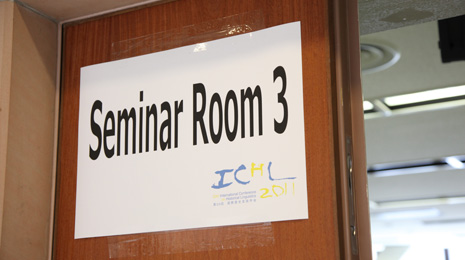 |
||

Stability and Borrowability of Interrogative Pronominals July 27, 2011, Osaka, Japan Organizer: Dmitry Idiatov (CNRS-LLACAN, Paris) Description: Interrogative pronominals, such as English who? and what?, are usually considered to be among the most change-proof elements in any language. They are believed to be highly resistant to both replacement through borrowing (Haspelmath & Tadmor 2009, Matras 2009:199) and language-internal renewal (Haspelmath 1997:176). In this respect, they strongly resemble personal pronominals. The two kinds of pronominals are also often perceived as good indicators of (long-range) genetic relationships and are regularly included in basic vocabulary lists. However, the view of personal pronominals as highly resistant to borrowing is not uncontroversial (cf. Wallace 1983, Thomason & Everett 2005, Matras 2009:203-208, Law 2009). It has also long been observed that reconstruction of personal pronominals tends to be fraught with difficulties due to their typically short forms and their tendency to undergo irregular changes, such as sound changes specific to them, various kinds of analogical changes and amalgamation with other elements. The workshop aims at assessing the claims on the universality of the extremely slow rate of change and high resistance to borrowing with respect to interrogative pronominals. Particularly welcome are papers on examples of fast changes of interrogative pronominals in families and subgroups, on examples of their borrowing and on the kinds of irregular changes affecting interrogative pronominals. Haspelmath, Martin. 1997. Indefinite pronouns. Oxford: Clarendon. Presentations: Michael Cysouw & Olav Hackstein Robert Ratcliffe Martha Ratliff Susan D. Fischer Dmitry Idiatov |
||
 |
||